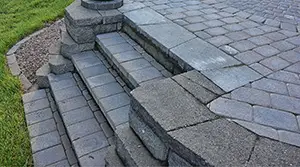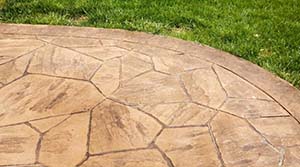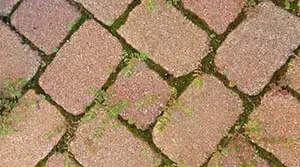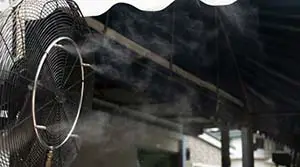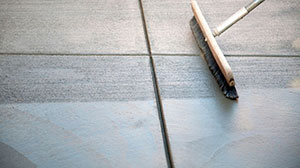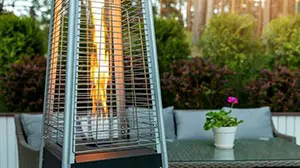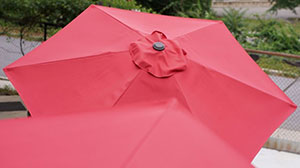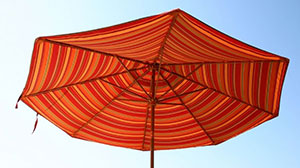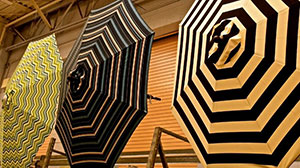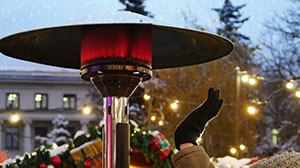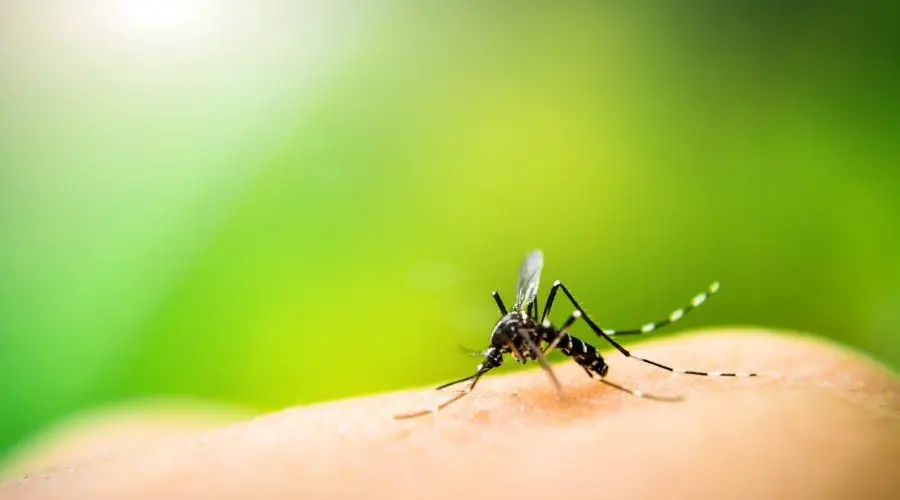
You have worked so hard to build a patio you can be proud of. But you cannot enjoy it. Every time you get outside, the mosquitos end up having a field day with you!
Luckily, you have plenty of options to help you keep the annoying insects away. You can do the following:
- Always be clean
- Get rid of stagnant water
- Treat standing water
- Trim your vegetation
- Change your outdoor lighting
- Install netting around your patio
- Use mosquito repellants
- Find ways of killing them
Tiny as they are, mosquitos can be pretty harmful. They carry diseases, such as dengue fever, malaria, Chikungunya virus, and others.
Therefore, it pays to learn what attracts them so you can understand better how to fight against them and enjoy your patio in peace.
What Attracts Mosquitos Towards Your Patio?
Several things attract mosquitos and make them more likely to thrive in your yard. These include:
1. Human Sweat
Research shows that human sweat contains a lactic acid odor. Some mosquitos have an Ionotropic Receptor 8a (IR8a). The receptor helps these mosquitos hone in on sources of lactic acid, which attracts them.
So, if you are sweaty and sit down to enjoy the outdoors on your patio, expect these annoying bugs to keep you company.
2. Stagnant Water
Standing water is another source of attraction for mosquitos. That includes things like
- Untreated pool water
- Birdbaths
- Dams
- Ponds
- Puddles
- Old tires, etc.
Standing water in things like storm drains and old discarded tires will also bring similar insect problems.
In particular, female mosquitos prefer stagnant water because it provides a place to lay and store their eggs. These eggs can stick firmly on the walls of artificial containers for months on end, even if they are dried out.
When they have water again, the mosquito eggs will hatch and grow at a rapid pace, which would leave you with plenty of annoying insects to deal with.
3. Body Heat
The annoying insects that are mosquitos are also attracted to body heat.
They will use it to narrow down on the source of warm blood on which they must feed. So, even if you are not sweaty but generate lots of body heat, mosquitos are likely to hone in on you while you sit outside on the patio to enjoy the outdoors.
4. Vegetation
Vegetation attracts mosquitos for several reasons. So, it helps to understand the role they play in attracting these annoying bugs.
First, it provides some of them with plant liquids. These act as a source of sugary food that helps them fly to mate and feed on human blood. It is worth noting that plants with lighter flower colors will attract mosquitos more.
The vegetation you have in your landscape could also enable mosquitos to breed. Typically, mosquitos will lay their eggs at the base of vegetation which will experience periodic flooding. That includes the holes of trees that store water and leaf bases that hold water.
5. Light
Mosquitos are among the positive phototaxis insects. That means they get attracted by light. However, the degree to which the attraction works depends on the type of mosquito.
Therefore, lighting increases the likelihood of the attack of mosquitos, which is unfortunate because you cannot always navigate in the dark unless there is a full moon. Research shows that mosquitos that bite during nighttime tend to avoid blue and UV light during the daytime.
However, those that bite during the daytime are attracted to all sorts of light.
Easy Ways to Keep Mosquitos Away From Your Patio
Your ability to keep mosquitos away from your patio depends on what the primary cause of attraction is. Below are some strategies you can use to do so.
1. Always Be Clean
Bearing in mind that mosquitos are attracted to sweaty people, you should avoid being smelly at all costs.
So, if you want to keep mosquitos away from you, you should learn to be clean. A shower or bath before enjoying time on your patio could significantly reduce the number of mosquito attacks you experience.
2. Get Rid of Stagnant Water
Since stagnant water provides conducive conditions for mosquitos to breed and grow, it would help if you got rid of as much of it as possible.
Also, clean out your water-storage containers and scrub thoroughly to eliminate any eggs that stick to their surfaces. These include tanks, buckets, and barrels, among others. If you choose to reuse toe containers, try and treat the water or cover it.
In addition, pay close attention to your gutter system. If it does not function as it should, it can hold plenty of standing water within the gutters, downspouts, and drainage pipes. So, ensure you remove all the things that clog it up, such as leaves, debris, and worn-out parts.
For functional standing water features, such as birdbaths, fountains, and wading pools, make an effort to change it regularly – about weekly.
You should also consider the entire drainage system in your yard. If some landscape sections have low points, these will act as a water catchment area.
Female mosquitos will lay eggs there. Before long, the buzz of mosquitos will be driving you crazy. So, take the time to fill the depressions and redirect the water flow so it’s much farther away from your patio.
3. Treat Standing Water
You will not always be able to get change or get rid of all the standing water in your yard as a way of keeping mosquitos off your patio.
For functional features such as dams and pools, you have to explore water treatment alternatives that help you deal with the mosquito habitats.
For starters, you can use mosquito larvicide in liquid or solid form. These are insecticide products that target mosquitos at the larvae stage by killing them.
Some mosquitos die of starvation because the insecticide prevents them from eating properly. And other larvicides kill mosquitos by preventing the eggs from growing fully into adults.
You can also treat stagnant water using specific film and oil products. These tend to cover the water surface causing the pupae or larvae to drown. However, some of these products may need to be applied by licensed professionals.
If you are looking to save money, you can reuse burnt coffee grounds to treat stagnant water. Studies show that it tends to repel female Asian tiger mosquitos that lay eggs and limit the development of their embryos.
4. Trim Your Vegetation
Having plenty of greenery is lovely because it increases shade, enhances curb appeal, and helps the environment. But your landscape should be neat.
To reduce mosquito breeding sites, ensure you prune your plants regularly. The last thing you want is lots of debris and low-lying vegetation that attracts female mosquitos and lets them lay eggs around your yard. When these eggs hatch, you will experience nothing short of a nightmare.
5. Change Your Outdoor Lighting
Having already established that lighting tends to attract mosquitos, it makes sense to change your lighting to keep night-biting mosquitos at bay. Alternatively, you can use lighting to reel them in and get rid of them in some other way.
As for daytime biting mosquitos who find all sorts of light attractive, changing the lighting may not be very effective.
You could start by using UV light at night. These could be in the form of LED lighting, flashlights, bulbs, and lamps you can use around the patio area.
However, you need to be cautious when handling UV light. That is because prolonged exposure to these lights can damage your eyesight and skin.
Another lighting strategy you can implement is to use yellow bug lights or yellow LED lighting in the outdoors. The yellow light wavelength is not as visible to mosquitos as the white one and, thus, will not attract them as much towards the yard and patio.
In addition, you could change the lighting to attract mosquitos to get rid of them some other way. But that would be counterproductive if you are looking to keep the annoying creatures from your patio. However, you could redirect them elsewhere away from you.
6. Install Netting Around Your Patio
A physical barrier between you and the mosquitos that disturb your peace is something worth considering too. And patio nets or curtains for screening your outdoor space can do wonders in that regard.
For the best results, opt for treated mosquito patio netting. These are usually treated using pesticides that repel or kill the insects. And the beauty about them is that they do not interfere with your access to the patio. You can still enjoy the sights and sounds in your yard. Also, they are usually easy to install and clean.
7. Use Mosquito Repellants
Mosquito repellants refer to anything that will keep mosquitos from settling or coming near you. They include plants, liquids, solids, and equipment that achieve such a result. You can use them by applying them, as sprays, to treat clothing and netting and within the outdoors.
Below are some of the repellants you can use to safeguard your patio.
Fans
On hot summer days and nights, a cool breeze is enjoyable. An excellent way to enjoy it is by using fans. What you may not realize is that fans will also help you keep mosquitos at bay.
Generally, mosquitos are not strong fliers. For that reason, strong winds can keep these insects away. One way to produce that wind force is by using a fan.
With plenty of outdoor fans on offer, you can find one for your patio that suits your needs and budget.
Mosquito Repellant Torches/Candles
You have the option of opting for tiki torches or candles that consist of a mosquito repellant as the main active ingredient.
Most products of that nature tend to contain citronella oil derived from various lemongrass plants. Studies show that citronella candles are relatively effective in keeping away mosquitos within a very short distance. So you can light them and keep them near you while you are out on the patio.
Mosquito Sprays
Some sprays help to repel mosquitos. But you must spray them on your clothes and sometimes, on the skin, for the best results.
According to the CDC, the most effective sprays are those that contain chemicals, such as:
- Oil of lemon eucalyptus (OLE)
- Picaridin
- DEET
- 2-undecanone
- Para-menthane-diol (PMD)
Provided the above repellants are prepared and used according to the instructions, pregnant and breastfeeding mothers are unlikely to suffer from side effects. And one can enjoy being free of mosquitos for several hours.
Mosquito Coils
Mosquito coils tend to repel or kill mosquitos on a limited scale, depending on their makeup. And it tends to work best in areas that have a minimal breeze.
However, the products pollute the environment significantly and are thus, not a good option so long as other strategies can work.
Mechanical Mosquito Repellant Devices
Some mechanical devices, which may sometimes use batteries or electricity to operate, can help repel mosquitos and keep them at bay. When you switch them on, the chemicals are heated and distributed by a battery-operated fan.
Many of these devices contain chemicals, such as metofluthrin, which effectively keeps mosquitos away. And many of them are portable, which means you can move them all around the patio for the best chance of protection.
Mosquito Repellant Balms
Mosquito repellant balms tend to be applied directly on the skin, as you would a body lotion or oil.
Typical mosquito repellant balms contain ingredients known for their insect repelling capabilities. They include plant extracts, such as citronella, neem, clove, catnip, thyme, eucalyptus, lemongrass, etc. However, the level of protection will vary depending on the ingredients they contain.
Plant Mosquito-Repelling Plants
Some plants produce a strong smell that keeps mosquitos away. And others act as a natural insecticide. So, it would be wise to plant them around your patio to keep it free of mosquitos.
Below are some of the plants you can include when landscaping or gardening:
- Lemongrass
- Neem
- Catnip
- Rosemary
- Mint
- Marigold
8. Find Ways of Killing Them
If you are dealing with a considerable population of adult mosquitos, you have to find ways of dealing with them permanently.
Use Insecticides
The simplest way to get rid of mosquitos is by using insecticide sprays, which tend to be highly effective. And they work by killing mosquitos when they come into contact with their aerosol droplets.
Provided you follow the instructions, most of the available pesticides will not have side effects.
Attract Natural Mosquito Predators
You can also kill mosquitos by introducing some of their natural predators within your landscape. For example, while those birdbaths can hold stagnant water, you will not have any issues when you change them regularly.
One of their main advantages is attracting birds, such as hummingbirds, swallows, and purple martins. These birds tend to feed on adult mosquitos and their larvae, thus providing a sustainable solution to your mosquito problem.
Mosquito fish is one of the most effective natural predators. But you can also stock goldfish, bluegill, catfish, and bass, among others.
Install Mosquito Traps
In addition, you can also opt for mosquito traps.
These physical devices attract rather than repel mosquitos by emitting some types of light, heat, or Carbon dioxide. Once the insects are trapped, they are dehydrated, electrocuted, or stuck until they die.
Final Thoughts
You have to know when to keep fighting and when to quit. If you have done everything you can to get rid of mosquitos and have failed to make a difference, call in the professionals.
These people will come into your property, inspect it, identify breeding grounds you may have missed, and then effectively use the best strategy to get rid of mosquitos.
While professional pest control service providers may not be cheap, they have the resources to cover larger areas, especially if your property has plenty of water bodies and vegetation. So, it would be wise to consider what you pay them as an investment in your sanity.
However, for regular yards, using the above methods will significantly reduce mosquitos within your space. And you can enjoy your patio for a long time without always dealing with the annoying buzz of mosquitos and the diseases they bring.
References

